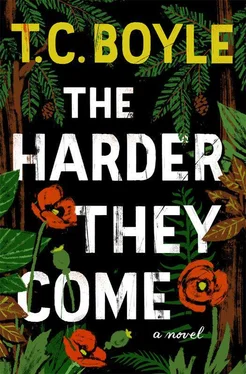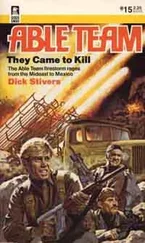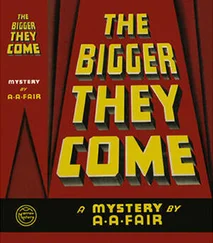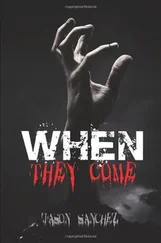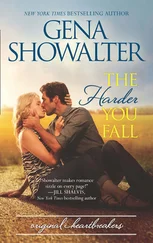He was thinking of another gas station, one that was long gone now, where he’d worked the summer before his senior year in high school. Three young Italians — or maybe one of them wasn’t Italian — had pooled their resources to open the place. They were in their early thirties, he guessed, but back then they seemed old to him, and they were enthusiasts, full of jokes and high spirits, their own bosses now and sure to rake in a fortune. One of them, the one who might not have been Italian — Gene, his name was Gene — did bodywork and the other two, Tony and Rico, were mechanics. What they needed him for was to pump gas, check tires and oil and coolant, and to dole out Green Stamps against their eventual redemption. Different times then. He’d worked seven a.m. to seven p.m. and every day at noon Rico would go to the sandwich shop and bring back subs for all of them — and beer, a can of which they would let him have instead of soda though he was underage. They made him feel good. Made him feel like a man.
Where were they now? he wondered. Dead, he supposed. Dead and buried and rotted away to nothing, the casket collapsed on itself, their bones bare and gray and losing heft by the day. People asked him what his philosophy was, as if by being principal — having been principal — he was schooled in the thoughts of the great thinkers, and what’s more, was a great thinker himself. Well, he had no philosophy. He just lived and drew breath like any other creature, more acted upon than acting. There were Jesus, Santa Claus and God when he was little, but they’d gone the way of slingshots and training wheels, the apprehension of death — the first intimation of it — canceling out everything else. What was his philosophy? Kill or be killed, eat or be eaten. Or no, that was too harsh. Just be, that was all. What was coming was coming and there was no sense or comfort in worrying about it. Other people went to church, other people played golf, served on committees, ran charities. He went on a luxury cruise. He went fishing. And if Carolee should die before him, he faced a world of woe so deep and catastrophic he didn’t think he’d be able to see himself through. Definitely not. No way in the world. He kept a gun in the house, a Glock 9mm he’d always prayed Adam would never find when he was a squirrelly kid and into everything, and that gun would have its use sometime down the line. Retirement plan? Sure, the good and giving Glock Firearms Company would see to that.
So he was morbid, so he was bored, so he was pumping his own gas and letting his mind tick through the past and present like one of the mutating tapes of the home movies he’d made when Adam was a kid before he saw the utter futility of it because who was ever going to watch them and how could you hope to stop time? There was a breeze. It lifted the hair around his ears and laid it back down on his shoulders, the lightest part of himself, but heavy all the same. Then a GMC Yukon, fire-engine red, slid up on the other side of the pump, and Art Tolleson’s face was there, suspended behind the sheen of the window like an old towel hung up to dry.
Art didn’t say hello and he didn’t smile. He looked like somebody carrying an armful of raw eggs as he eased out of the car and climbed up onto the island separating the pumps. “Did you hear?” he asked.
“Hear what?”
“They shot Carey Bachman.”
“Who?”
“Who do you think — the Mexicans.”
Art stood there blinking at him, the tentative expression gone now, subsumed in something harder. He looked pained, looked angry, as if he’d been shot himself, Art Tolleson, friend, neighbor, former colleague, a lifelong bachelor in his early fifties who taught English at the high school, and whether his sexual orientation had been a matter of conjecture in the faculty lounge or not never factored into the school board’s perception of him because he drew students like a magnet, male and female alike, and never a complaint or even the hint of one. He had a high nasal English teacher’s voice and a slack body, but as if in compensation — and to still rumors — he dressed as if he’d been born and raised in a logging camp, workboots, jeans, plaid shirts, and made a point of attending the full range of sporting events at the school. He hunted in the fall. Fished in the spring. And he’d done Sten a huge favor by taking the house off his hands, though the day he took possession was a disaster, every window in the place smashed out, glass everywhere, the coffee table staved in and the toilet in the guest room — Adam’s room — shattered in porcelain fragments that lay scattered across the floor like unearthed bones, the water three inches deep and flowing out under the door. Sten had cleaned up the place himself, paid for everything, and he and Carolee had put Art up in the guest room at their place till the glazier got done because it was the least they could do. As for Adam, he hadn’t laid eyes on him since — or heard from him — and that was a month ago. “He needs help,” was what he said to Carolee, but what he was thinking, exhausted now, fed up, terminal, was Goodbye and good riddance; there’s no paternal or even human sympathy left because the well has run dry. It’s dried-up and blown away.
“What are you talking about? What Mexicans?”
Art should have been wearing glasses but he wasn’t — contacts, had he gotten contacts? Or what, laser surgery? Art gave him a strained look, ever so slightly myopic. “They found him last night, up on the north logging road — you know, the one where there were all those downed trees last spring?”
He didn’t have anything to say to this. He was picturing the Mexican with the pistol tucked in his waistband, the Don’t-Fuck-With-Me clown with the scooped-out face. That picture went gray and broadened out till it was like a shovel whacking him in the back of the head. His blood pressure rocketed. Here it was, right in your face. The only surprise was that it hadn’t come sooner.
Art, myopic Art, was studying him out of his dull brown eyes, expecting some sort of response, but Sten was thinking about Carey, trying to picture him, and drawing a blank. All he could see was the Mexican, duplicated over and over again.
“They shot him twice is what I hear and left him there to die. That was night before last so there’s no telling how long he suffered. And then”—he hesitated, his eyes jumping in their sockets—“the animals got to him. After he was dead, I mean. Or I think. I hope.”
There was nothing to say but he had to say something so he said, “All right,” and what that meant— I’ve heard enough or I feel your outrage or The tank’s full —he couldn’t have said himself.
Art said, “We’ve got to do something.”
“Yeah,” Sten said, or heard himself say because he wasn’t all there yet, “definitely. Definitely we have to do something.”
“You have a gun?” Art’s tone was nasal but elevated with emotion, and he might have been reading out a line from David Mamet or Arthur Miller to his drama class. You have a gun?
Sten didn’t answer him, or not directly, because he didn’t want to go down that road because that road led to people getting shot in the woods, led to poor Carey with his hot head and thumping knee getting it not once but twice until he was dead, dead, dead. Take Back Our Forests. Fine. Sure. But not that way. “They ought to call out the National Guard,” he said. “Sweep the whole fucking forest.”
“That’s an idea. Really. That’s what they ought to do.” A pause, a look, direct, eyeball to eyeball. “But Carey’s dead. And they’re still out there. Right now. Laughing, probably laughing about it.”
Sten got his receipt out of the metal slot, tucked it in his wallet, swung open the door and settled into the seat. “We’ll talk,” he said before slamming the door, starting up the engine and edging out onto the highway. A quick glance for Art in the rearview, and there he was, looking small and lost, the big red truck looming over him. Somebody waved from a passing car, somebody who looked familiar, though he couldn’t place him, and he actually started toward the harbor, driving along like anybody else on the way to a morning’s fishing on a day of precious sunshine under a sky lit bright and without a cloud to cast a shadow, before he put on his blinker, swung round and headed back home. The fish would be relieved, at least there was that.
Читать дальше
